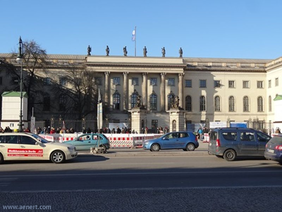The QS World University Rankings is an annual publication of university rankings by Quacquarelli Symonds (QS). The company not only publishes an overall ranking of universities, but also lists them by academic disciplines, such as, for example, Engineering and Technology. The rankings can help prospective students make informed decisions regarding the choice of university and subject. The complete university rankings can be viewed on the homepage of QS Top Universities.
The methodological framework of the QS World University Rankings has experienced little change over time. It includes six metrics that effectively capture university performance. Thus, the company wants to ensure that year-on-year comparisons remain valid and that volatility is minimised. The metrics include, for example, Academic Reputation, Employer Reputation, and Citations per faculty.
The metrics have seen some significant changes and developments taking place since last year’s edition, particularly regarding the scope of analysed material. The 2018 table lists the world’s top 959 universities and is based on the opinions of over 75,000 academics, 40,000 employers, as well as 12.3m research papers and 75.1m citations.
The Massachusetts Institute of Technology (M.I.T.) is the world's leading university for the sixth consecutive year. US institutions dominate the top 3 of the ranking, in spite of the budget cuts in state universities which caused a decline in last year’s ranking. M.I.T received the highest possible score (100) in almost all six categories.
However, despite the continued dominance of US universities at the top, it should be noted that elsewhere in the rankings US universities had to make way for Russian, Chinese and Indian universities - among others. Lomonosov Moscow State University, for example, entered the top 100, occupying 76th position. It received particularly high scores in the categories of Faculty student (99.7) and Employer reputation (78.2).
The most apparent trend this year is the decline of the UK’s institutions. Of the 76 universities ranked, 51 have dropped in the rankings, and only one UK institution was able to enter the top five – the University of Cambridge.
UK universities have been affected by austerity measures. In particular, research funding has not increased as much as in some other countries. This will be a huge challenge for policy makers if UK universities are to remain competitive.
Another conspicuous trend is that universities with a strong technological focus scored best this year. Singapore's Nanyang Technological University, for example, rose to 5th position; Korea's
KAIST occupies 15th position, while in 22nd place the Delft University of Technology becomes the Netherlands' leading university. Also, the Indian Institute of Technology-Bombay has once again secured itself a place in the world’s top 100 universities. IIT-B has jumped from 87th position last year to 68th in 2018, scoring high in Employer Reputation (72.9) as well as Citations per Faculty (54.1) and joining IIT Delhi (64th) and the Indian Institute of Science, Bangalore, (115th) in the league of the top 200 institutes of the world. It is the first time in over a decade that three of the country’s universities have managed to enter the top 200.
The US top the rankings with M.I.T. in first place and a further 74 universities are represented in the listings. The US is followed by China, with 41 universities included, and the UK with a total of 38 universities. Other Asian nations also feature strongly in the rankings; South Korea with 23 universities and Japan with 17.
